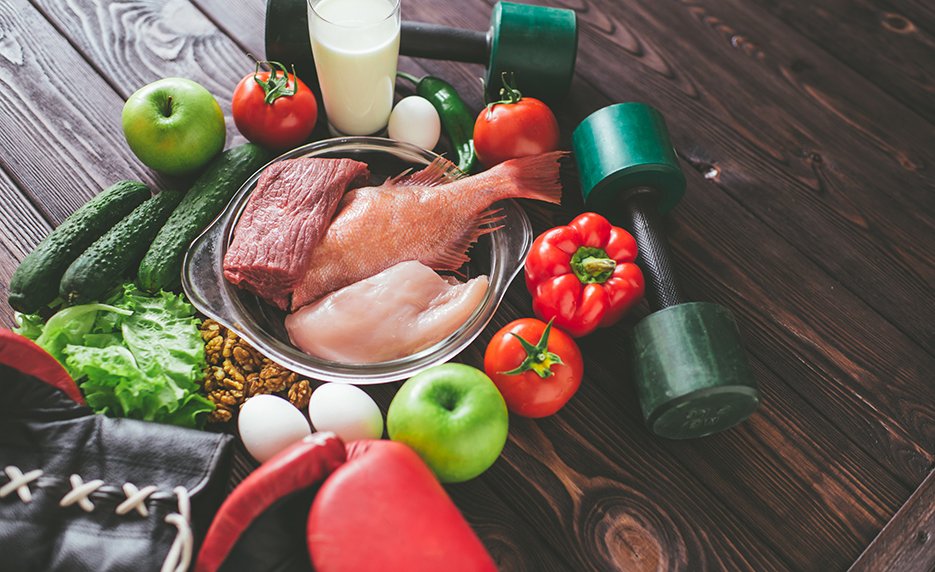
Macronutrients, or macros for short, are the fuel in your food that make up a food’s composition, and help you create energy. Required by the body in large quantities. When people in the fitness world talk about macros, they are talking about our three sources of energy: fat, protein and carbohydrates. You can find them listed on the nutrition facts panel of most foods, or by using calorie counting apps and calculators.
Lets go through each of these macros, explain what they’re for, and what you can do to get more or less in your diet and nutrition.
Carbohydrate
Carbohydrate is the main source of energy for your body.
There’s two types of carbs: complex carbs and simple sugars.
Sugars are carbs which your body finds it really easy to utilize. They’re like kindling: quick to burn and use but they don’t last long. As such they’re a great form of fuel if you’re exercising hard and need a quick source of energy in your workout. However, eat too much and your body converts the excess to fat.
Complex carbs or “slow release” are the carbs found in grains, pasta and pulses. These are like the logs for the fire. Slower to burn with a steadier release of energy. When you’re exercising, mixing up your carbs is a great way to keep yourself fueled for longer. From experience when I have a complex carb an hour before a workout I feel I have energy for most of my workout, while when I have a simple sugar 30min or an hour before the workout I tend to feel like I am crashing by the middle of the workout.
According to a study from the Journal of Nutrition, eating a breakfast with ‘slow-release’ carbohydrates like oatmeal or wheat cereal turns out to be very beneficial to burn your fat. Some studies evidence that foods with ‘slow-release’ carbohydrates will not increase the blood sugar rapidly compared with refined carbohydrates and thus, the insulin level will not increase rapidly too. For your information, insulin is a hormone that has responsibility to give the signal to your body to store the fat. The lower level of the insulin in the body, you might have a chance to burn your fat and lose some weight.
Fat
The macro that most people think is the worst but it is incredibly important to have in your diet. Contrary to what some people believe, the idea that fat is bad for you — as well as fat will make you fat — are both common misconceptions. The truth is that your body needs fat to function. This macronutrient is a major source of energy and so much more. These essential fatty acids help keep you warm and regulate temperature, they’re necessary for your body to absorb important nutrients, and they play a crucial role in some of your body’s everyday functions.
Fat is even slower burning than complex carbs. It’s the last thing your body would choose to burn, which is why it can be so hard to lose it from your belly. Fats also help you absorb certain vitamins and there’s evidence in studies that show if you get enough fat in your diet it can boost your immune system and improve brain function.
Fat can be found in meats, fish, nuts and seeds, olive oil, egg yolks, cream and avocados, which is why avocados taste so good!
Studies show that healthy fats like omega-3 fatty acids (found in fatty fish) are great for maintaining healthy cholesterol levels. Consuming these fats might help maintain healthy cholesterol levels and improve heart function, support healthy inflammatory pathways, optimize brain function, promotes good sleep, improves skin with the rise of eicosanoids, which affects your skin inflammatory response and some studies indicate polyunsaturated fat supplementation is essential in fostering glycemic control, helping maintain healthy blood sugar levels in people with insulin resistance.
Protein
The most important macro to understand and not limit in your diet! Without having enough protein for your goal and your body it will be nearly impossible to recover well from hard workouts and gain muscle mass and strength. If you don’t eat enough of these, your body will start to break down muscle in your body to create its own.
While you may watch your calories, fat, sugar and salt intake, you should also make sure you are ingesting enough protein. It plays a key role in the creation and maintenance of every cell in our bodies. It fuels our cells and powers our bodies.
Nancy Waldeck, chef and dietitian at Thomas F. Chapman Family Cancer Wellness at Piedmont points out that our bodies do not store protein.
“It is important for individuals to consume protein every day. Daily protein intake plays a role in keeping your cells in good shape and should be part of your daily health maintenance plan.”
Eating high-protein foods has many fitness benefits, including: Speeding recovery after exercise and/or injury, reducing muscle loss, building lean muscle, helping maintain a healthy weight, curbing hunger.
As muscles are made of protein, if you aren’t eating enough protein, you won’t be able to grow muscle simple as that. I would recommend eating about 40-50% of calories from protein if you are trying to build muscle, and around 30% if you are just trying to keep healthy. Keep in mind that the studies that show we need 10% only or the famous nutrition guideline of 60g of protein needed in a 2,000 calorie diet (which in that alone is not accurate as we all have different calories and macro needs) is just bare minimum to remain healthy and not have low protein deficiency in your body.


